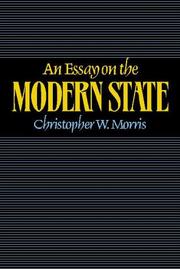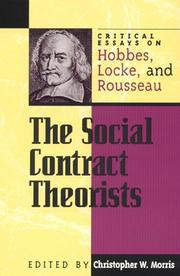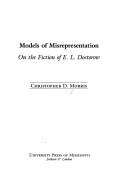Book
Year: 1967 Publisher: London Longmans, Green
Abstract | Keywords | Export | Availability | Bookmark
 Loading...
Loading...Choose an application
- Reference Manager
- EndNote
- RefWorks (Direct export to RefWorks)
Book
Year: 1955 Publisher: London B. T. Batsford Ltd
Abstract | Keywords | Export | Availability | Bookmark
 Loading...
Loading...Choose an application
- Reference Manager
- EndNote
- RefWorks (Direct export to RefWorks)
Book
ISBN: 0226831272 9780226831299 0226831299 9780226831275 Year: 2024 Publisher: Chicago (Ill.): The University of Chicago Press,
Abstract | Keywords | Export | Availability | Bookmark
 Loading...
Loading...Choose an application
- Reference Manager
- EndNote
- RefWorks (Direct export to RefWorks)
"From the early days of radio broadcast to today's recorded simulcasts and live online productions, opera houses have embraced technology as a way to reach new audiences. But how do these new forms of remediated opera extend, amplify, or undermine production values, and what does the audience gain or lose in the process? In Screening the Operatic Stage, Christopher Morris critically examines the cultural implications of opera's engagement with screen media. Foregrounding a playful exchange and self-awareness between stage and screen, Screening the Operatic Stage analyzes how opera sees itself on video. Morris uses the conceptual tools of media theory to understand the historical and contemporary screen cultures that have transmitted the opera house into living rooms, onto desktops and portable devices, and across networks of movie theaters. These screen cultures reveal how inherently "technological" opera is as a medium, begging the question of whether it can be understood independently of technology. Ultimately, Screening the Operatic Stage shows how the technologies of televisual representation employed in opera reinforce its audience's expectations for the genre"--
Book
Year: 1953 Publisher: London New York : Oxford University Press,
Abstract | Keywords | Export | Availability | Bookmark
 Loading...
Loading...Choose an application
- Reference Manager
- EndNote
- RefWorks (Direct export to RefWorks)
Idées politiques --- Philosophie politique --- Église et état --- Grande-bretagne --- Grande-bretagne --- Grande-bretagne --- Idées politiques --- Philosophie politique --- Église et état --- Grande-bretagne --- 1485-1603 (tudors) --- Grande-bretagne --- 1485-1603 (tudors) --- Grande-bretagne --- 1485-1603 (tudors)
Book
ISBN: 0520404033 Year: 2024 Publisher: Berkeley : University of California Press,
Abstract | Keywords | Export | Availability | Bookmark
 Loading...
Loading...Choose an application
- Reference Manager
- EndNote
- RefWorks (Direct export to RefWorks)
Biotraffic explores the complex world of biological resource trade. It takes readers inside the contemporary Ciskei region of South Africa, a once-notorious apartheid "homeland" turned extractive hub for wild medicinal plants. Drawing from in-depth ethnographic and archival research, Christopher Morris examines the region's trade in Pelargonium sidoides, a plant once contested as a tuberculosis treatment in early twentieth-century Europe and now an internationally marketed remedy for the common cold. The story of this trade links past and present, encapsulating a larger tale about colonial legacies and their intersection with global environmental governance ambitions. It also teems with a diverse cast of actors, from plant harvesters and pharmaceutical companies to activist NGOs and the chiefs who have become business partners with multinational drug firms. The book's analysis extends beyond considering merely the extraction and commercialization of plant resources and offers a critical examination of how demand for therapeutics intertwines with broader struggles over land and political power in South Africa. Biotraffic illuminates how a distance-defying trade is reshaping the sociopolitical landscape of a region--a region grappling with apartheid's afterlives and the challenges of environmental and economic justice.

ISBN: 052149625X 0521524075 0511609124 9780521496254 9780511609121 9780521524070 Year: 1998 Publisher: Cambridge Cambridge University Press
Abstract | Keywords | Export | Availability | Bookmark
 Loading...
Loading...Choose an application
- Reference Manager
- EndNote
- RefWorks (Direct export to RefWorks)
This important book is the first serious philosophical examination of the modern state. It inquires into the justification of this particular form of political society. It asks whether all states are 'nation-states', what are the alternative ways of organizing society, and which conditions make a state legitimate. The author concludes that, while states can be legitimate, they typically fail to have the powers (e.g sovereignty) that they claim. Many books analyze government and its functions but none focuses on the state as a distinctive form of political organization or examines critically the claims states make for themselves. In filling this lacuna Christopher Morris has written a book that will command the attention of political philosophers, political scientists, legal theorists, and specialists in international relations.
Political philosophy. Social philosophy --- State, The. --- Arts and Humanities --- Philosophy --- Administration --- Commonwealth, The --- Sovereignty --- Political science

ISBN: 0847689077 Year: 1999 Publisher: Totowa Rowman & Littlefield
Abstract | Keywords | Export | Availability | Bookmark
 Loading...
Loading...Choose an application
- Reference Manager
- EndNote
- RefWorks (Direct export to RefWorks)
Rousseau, Jean-Jacques --- Hobbes, Thomas --- Locke, John --- 321.01 --- Social contract --- Social compact --- Consensus (Social sciences) --- Political science --- Sociology --- Sovereignty --- Algemene staatsleer. Politieke filosofie. Staatsleer. Staatstheorie --- -Locke, John --- -Rousseau, Jean-Jacques --- -ロック --- 로크 --- Contributions in political science --- Social contract. --- -Contributions in political science --- 321.01 Algemene staatsleer. Politieke filosofie. Staatsleer. Staatstheorie --- Hobbes, Thomas, --- Locke, John, --- Rousseau, Jean-Jacques, --- Rousseau, Jean Jacques --- Rouseau, Jan Jakub, --- Russo, Zhan Zhak, --- Rousseau, John James, --- Rūssū, Jān Jāk, --- Lu-so, --- Ru-xô, Giăng-Giá̆c, --- Rousseau, Jean Jaques, --- Rousseau, Jean Jeacques, --- Rousseau, J. J. --- Rusō, Jan Jakku, --- Rousseau, Gian Giacomo, --- Ruso, Z'an Z'aḳ, --- Rūcō, --- Citoyen de Genève, --- Citizen of Geneva, --- Roussō, --- Rousseau, --- Rūssō, --- Rousseau, Johann Jacob, --- Руссо, Жан-Жак, --- רוסא, זשאן־זשאק --- רוסא, י׳ן י׳ק, --- רוסו, זאאן זאאק, --- רוסו, ז׳אן־ז׳אק, --- روسو، چان چاك --- روسو، ژان ژاك --- 卢梭, --- Rousseau, Juan Jacobo, --- Rousseau, G. G. --- Ruso, Jan Jak, --- Rūsaw, Zhān Zhāk, --- Rūsū, Zhān Zhāk, --- Philanthropus, --- Lokk, Dzhon, --- Lūk, Jūn, --- Lo-kʻo, --- Locke, Giovanni, --- Lock, --- Lock, John, --- Rokku, Jon, --- לוק, י׳ון, --- Gobbs, Tomas, --- Hobbs, Thomas, --- Gobbes, Tomas, --- T. H. --- H., T. --- Hobs, Thomas, --- Hobbes, --- Hobbes, Thom. --- Hobbius, Thomas, --- Hobbuzu, Tomasu, --- Huobusi, --- Hobbs, Tho. --- הובס, תומס, --- 霍布斯, --- ホッブズ, トマス,

ISBN: 087805524X Year: 1991 Publisher: Jackson : University press of Mississippi,
Abstract | Keywords | Export | Availability | Bookmark
 Loading...
Loading...Choose an application
- Reference Manager
- EndNote
- RefWorks (Direct export to RefWorks)
Book
ISBN: 9780195156980 Year: 2012 Publisher: New York Oxford university press
Abstract | Keywords | Export | Availability | Bookmark
 Loading...
Loading...Choose an application
- Reference Manager
- EndNote
- RefWorks (Direct export to RefWorks)
Death --- Moral and ethical aspects --- Dying --- End of life --- Philosophy --- Life --- Terminal care --- Terminally ill --- Thanatology
Multi
ISBN: 9780521852913 9780521618069 9780511800511 9780511651991 0511651996 0521852919 0521618061 0511800517 1107209900 051169976X 1282393952 9786612393952 0511647913 0511633041 0511631839 0511634250 Year: 2010 Publisher: Cambridge Cambridge University Press
Abstract | Keywords | Export | Availability | Bookmark
 Loading...
Loading...Choose an application
- Reference Manager
- EndNote
- RefWorks (Direct export to RefWorks)
Amartya Sen was awarded the Nobel Memorial Prize in Economics in 1998 'for his contributions in welfare economics'. Although his primary academic appointments have been mostly in economics, Sen is also an important and influential social theorist and philosopher. His work on social choice theory is seminal, and his writings on poverty, famine, and development, as well his contributions to moral and political philosophy, are important and influential. Sen's views about the nature and primacy of liberty also make him a major contemporary liberal thinker. This volume of essays on aspects of Sen's work is aimed at a broad audience of readers interested in social theory, political philosophy, ethics, public policy, welfare economics, the theory of rational choice, poverty, and development. Written by a team of well-known experts, each chapter provides an overview of Sen's work in a particular area and a critical assessment of his contributions to the field.
Economics. --- Social sciences --- Philosophy. --- Sen, Amartya, --- Verband tussen de ethiek en de economie. Ethiek en bedrijf. --- Economics --- 08 --- 174 --- 313 --- 330.580 --- AA / International- internationaal --- Social philosophy --- Social theory --- Economic theory --- Political economy --- Economic man --- Philosophy --- Biografieën en memoires --- Verband tussen de ethiek en de economie. Ethiek en bedrijf --- Levenswijze en levensstandaard. Levensminimum. sociale indicatoren (Studiën) --- Gecontroleerde economie. Geleide economie. Welvaarststaat. Algemeenheden --- Sen, Amartya Kumar --- Sen, Amartya Kumar, --- Amartya Sen, --- Amartya Kumar Sen, --- Sena, Amartya, --- Amartya Sena, --- Sen, A. K. --- Sen, Amartya K. --- ʻAmāttaya Sen, --- Sen, Armatya, --- Sen, Amarty K. --- Sen, Amadiya, --- Amadiya Sen, --- 阿瑪蒂亚・森, --- Sen, Amartya --- Arts and Humanities

 Search
Search Feedback
Feedback About UniCat
About UniCat  Help
Help News
News